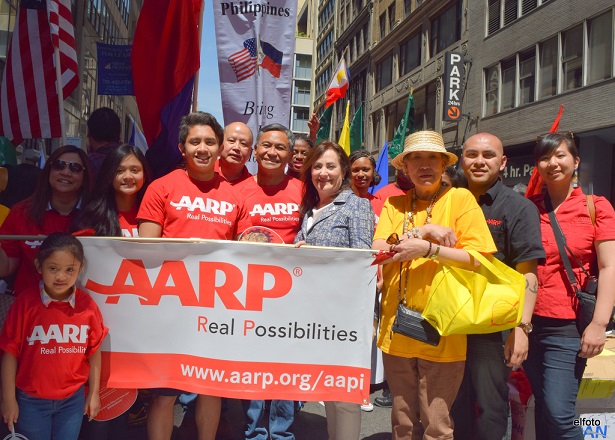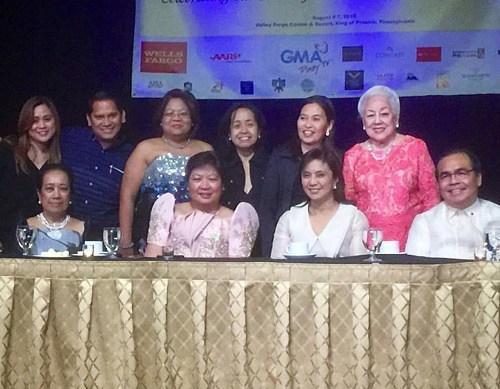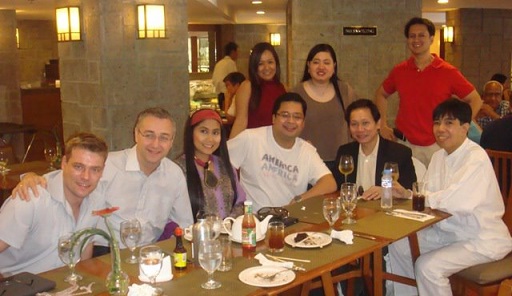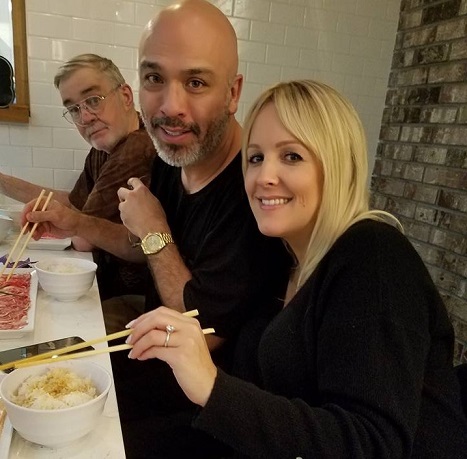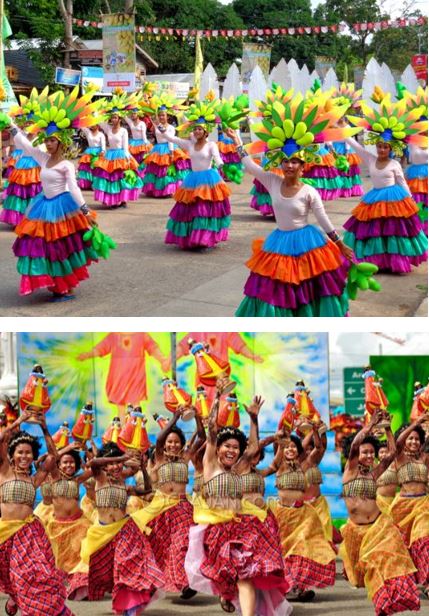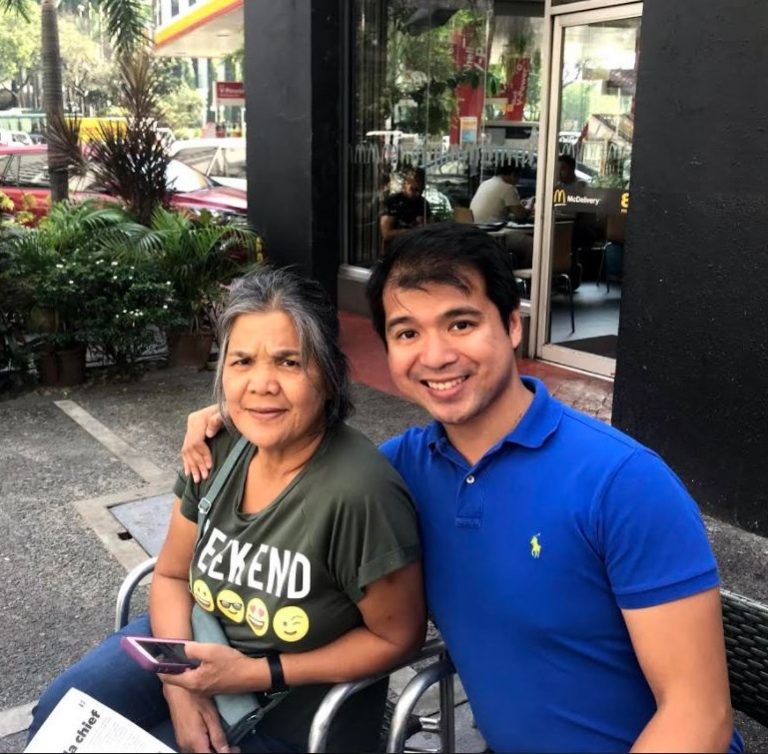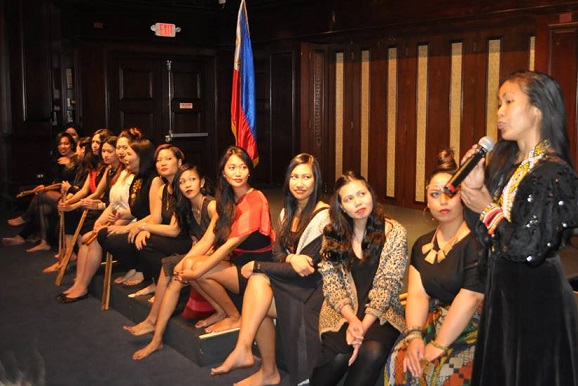Tandaan mo, iha, ikaw ay ‘Raised Pinay’*
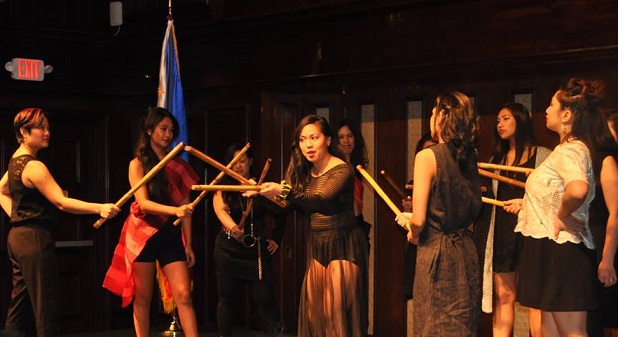
The play was produced to support Roots of Health’s campaign to protect the health of women and children in Palawan. Photos by Grace Labaguis
By Cristina DC Pastor
In the mid-1990s, feminist Eve Ensler wrote and performed “The Vagina Monologues,” recreating in prose how this pleasure shrine is used to celebrate and subjugate women.
The multi-part play became a big hit for shattering the taboo and making the ‘vagina’ a sociopolitical tour de force, the message of ending violence toward women echoing whenever women’s day is celebrated around the world.
Three nights ago on March 31, I watched a production that promptly recalled Ensler’s Off Broadway hit, except that “Raised Pinay” – with its all-Filipina American cast — jabbed me in the head, glared me down, and spoke to me.
Don’t be magaslaw… Do not do anything that will give shame to the family…Huwag kang tamad were admonitions I may have heard from my parents growing up. Study hard…be thrifty and save for a rainy day…stand up for who you are are messages I may have drilled into my daughter’s head as I was raising her. The so-called Filipino values occupied a big part of my own consciousness both as a daughter and as a mother.
The message of “Raised Pinay” — as created by director Jana Lynne Umipig and performed by a dozen FilAm women — is a one of liberation and “honoring all Filipino women all over the world.”
“These are the stories of their grandmothers and ancestors, these are the stories of their lives, and they’re sharing them with you,” Umipig told the audience as the play opened at the Philippine Center.
One by one, the women spoke about how they were raised in traditional values. Such values may have felt nurturing when they were children but are now meaningless and outright ridiculous as they grow and on their way to finding their true selves as Filipina Americans.
Body image was a resonant, resonating theme. Maria Rubio shared how she felt marginalized on coming home to the Philippines, dismissed as “American” — not Filipino American — and deemed “unattractive and fat” because of her Triple X build. Justine Ang Fonte recalled how as a 6-year-old she fell and scraped her knee. The family that rushed to her side and aided her also showed dismay that “Ay, sus, you cannot be Miss America anymore.” Karen Joy Pangantihon lamented how in Filipino gatherings, greetings about looks are often “disguised as criticisms.”
While the series of monologues were mostly poignant, at times witty, the one that ran away with hilarity was Rachelle Ocampo’s ‘Regla,’ where she recalled a horrific episode in her coming-of-age: her first period. Like most fifth-graders, she did not know what to do on finding “half wet, half dry, clumpy, dark red blood in my panties,” so she phoned her mother at work to seek counsel. Her mother welcomed her with cheers of “Dalaga ka na,” but also left her with a piece of folksy belief about washing her face with her first period to prevent pimples.
“I went back to the bathroom, unwrapped my underwear, and hesitantly proceeded to rub the panties on my face, and immediately scarred the rest of my teenage life because I didn’t understand the relation between rubbing bloody, period panties on my face and clearing out my teenage pores.” At this point, the audience had erupted in laughter. Ocampo is left to wonder if this rite-of-passage is something she should pass on to her daughter.
“Raised Pinay” is an intriguing title that did not make sense to me at first until I watched the production. It all came together when seen as a complete playlist of women’s voices expressing anger, frustration, dismay, understanding, love, and gratitude at how they were raised, but also seeking to abandon the absurdities of certain traditions that have become meaningless.
There is a one-dimensionality to the play. Many of the monologues were narratives about growing up. I would have wanted to hear other voices, other stories. Narratives of FilAms forced to knot their tongues in a process of assimilation. How about a Filipina discriminated in the work place because she is seen as timid and always smiling. And the Filipina who adores her American children because they look like Ken and Barbie and their whiteness brings prestige to her family in some remote Philippine village. Someone needs to own up to these stories because ultimately the transformative immigrant experience does not end when one acquires a green card.
*Remember, my dear daughter, you are raised a Pinay.



